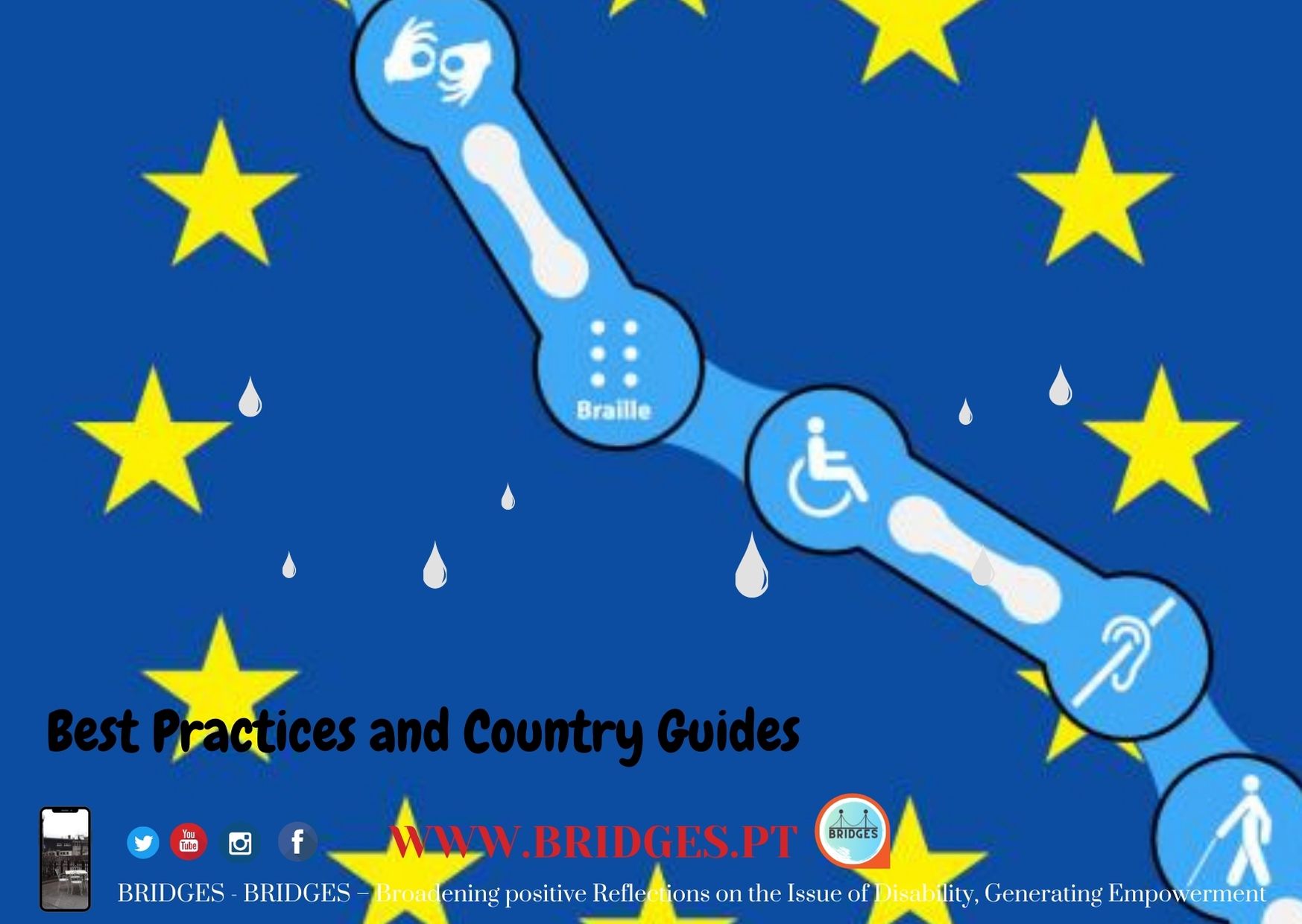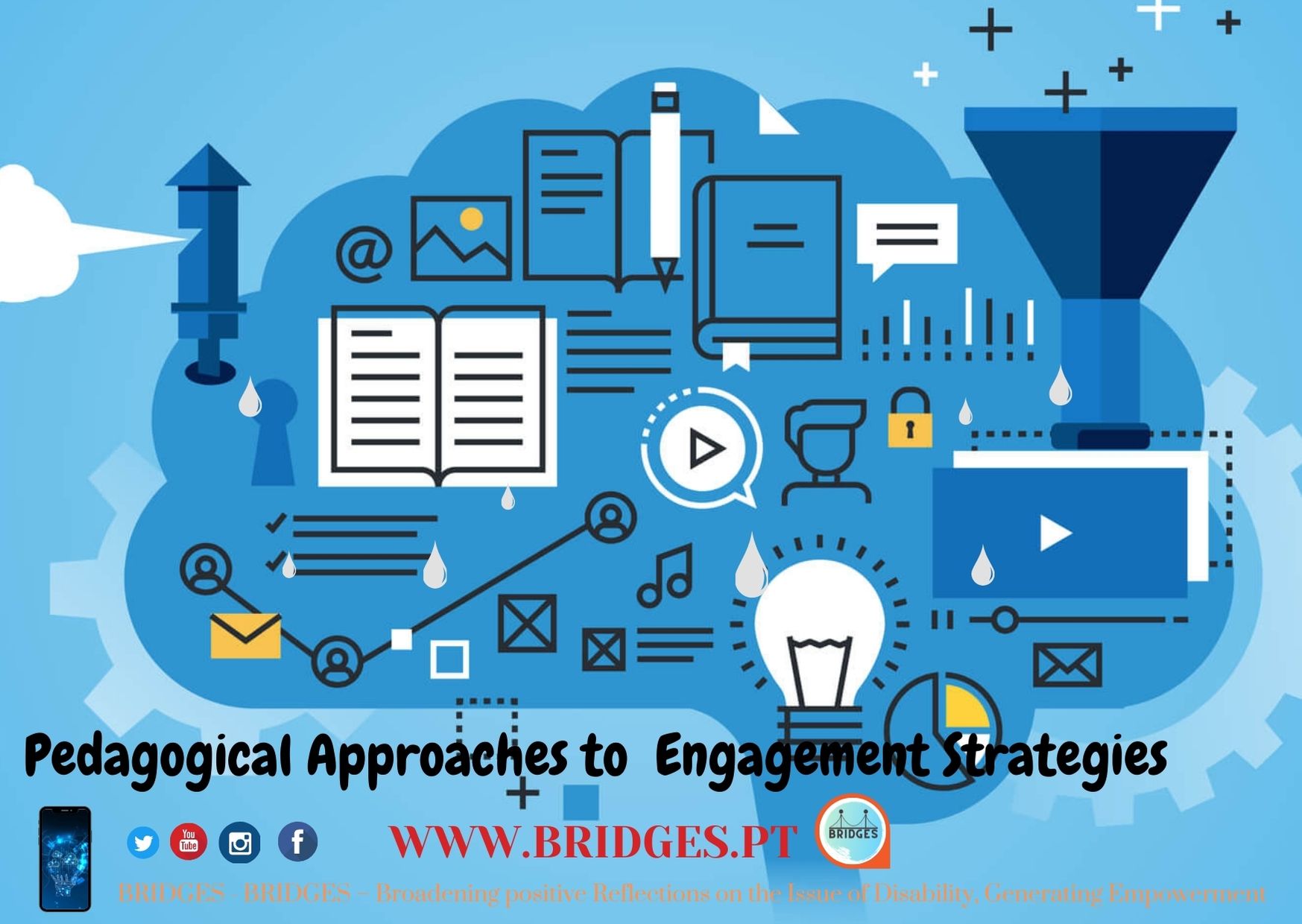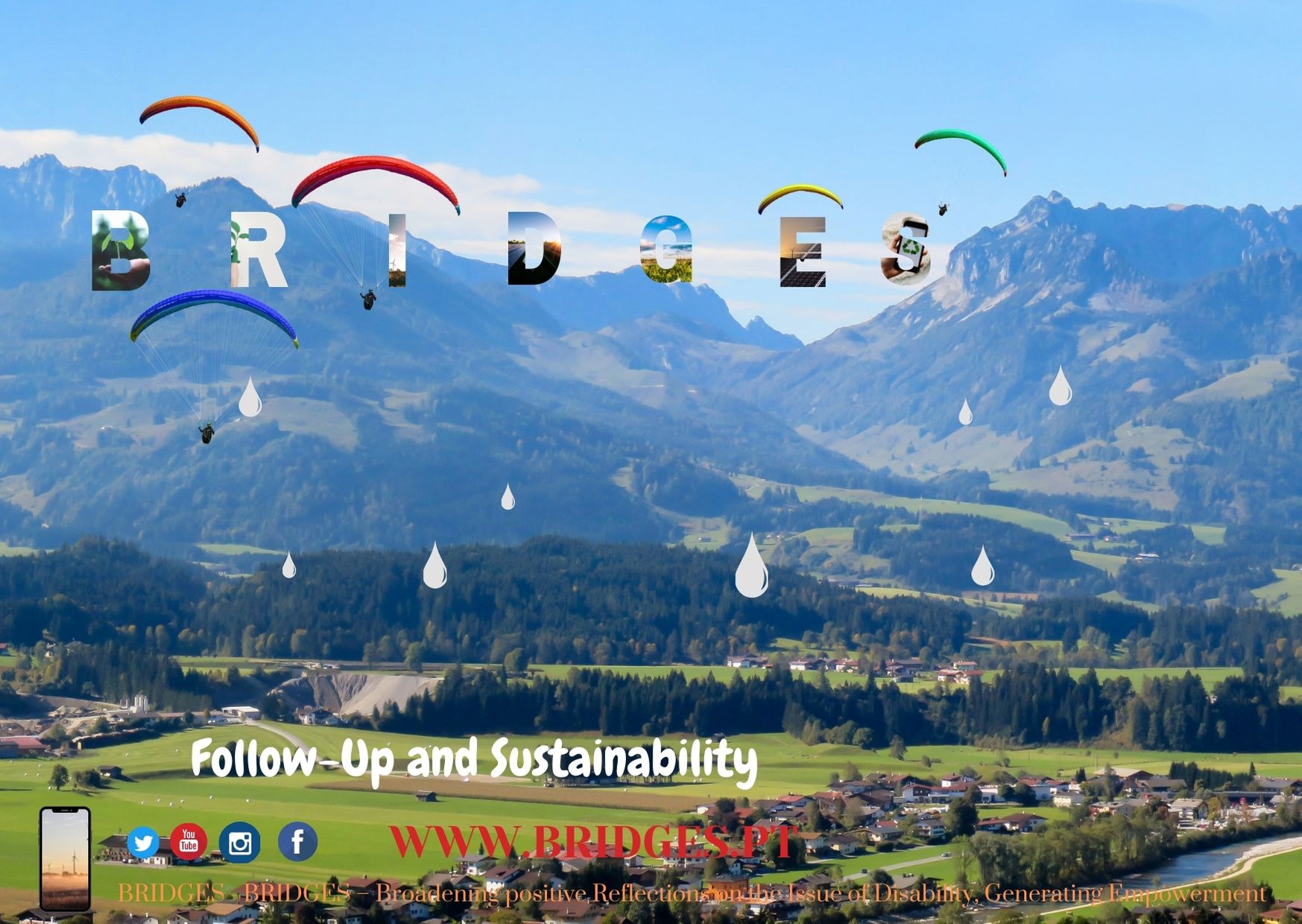After completing this resource, the learner will be able to:
– Identify ways to expand one’s own professional network and to support a person with a disability to build their own network
– Apply specific advocacy strategies around employability for people with a disability
– Apply specific use of particular (social) media tools to the purpose of raising awareness and employment promotion
Being competent with the use of media, promotion, with networking and advocacy is of even more importance than we sometimes realise. This module deals with these competences that go beyond an actual job as a job coach, or beyond finding employment for a family member or a friend with a disability. You will need these skills on two levels: to build a positive climate around disability and employment in the public, politics and therefore increase your chances of success. Second, to improve your professional representation.
Those who build up a positive climate for “their cause” in the public, in politics and in the social environment increase their chances of success. Through this work there is the chance to raise the awareness of people, of stakeholders, of decision-makers in companies. In the same way, political decisions can be influenced by good lobbying, by networking and exerting influence. Funding can be stimulated, initiatives can be started or laws can be introduced. Sometimes even more can be achieved in this way than through the specific work on site. To consciously focus on this work is therefore a rewarding task, also in the interest of the people with a disability.
Secondly, we are active in an area where professional representation of interests is a particularly important matter. People with disabilities usually have no lobby, their image in public, in politics and especially in the economy is distorted. This calls for increased commitment on the part of everyone involved in this sector. This module will therefore also focus on how we can change the public image of people with disabilities and how we can present ourselves in a self-confident, professional and credible manner. This topic also includes the question of how to deal with the problems, prejudices and personal limitations that arise in the world of work. There are no ready-made solutions to this. However, self-reflection and the ability to critically question patterns and develop new, creative ideas are part of the learning objective.
In specific terms, this module deals with various techniques and methods that are suitable for addressing the concerns of people with disabilities. Here, only excerpts of content, e.g. from the fields of marketing, political communication or journalism, can be presented. For this reason, a number of suitable methods will be listed selectively and by way of example, which are well suited to the topic at hand here. Special emphasis is placed on gaining skills in analysis, classification and criticism. Certain methods are used more often in different units in order to practise them. Some elements from the units are also linked and build on each other to increase the learning effect.
Media, journalism, lobbying, representation of interests, stereotypes; publicity, networking
| Word | Explanation |
| Advocacy |
Advocacy refers to the advocacy and representation of interests for a cause, a topic or a group and is directed both at actors at the political level (stakeholders) and at the general public and media. |
| Lobbying |
Influence of organised interest groups (e.g. associations, non-governmental organisations) on the executive and legislative branches, e.g. in the form of letters, telephone calls, hearings, presentations, reports, studies, etc. Returns from interest groups to politicians can be specific information, donations, etc. Lobbying can also take the form of threats of political pressure (strike, delivery boycott, job cuts). |
| Marketing (non-profit) |
As job coaches are mostly in the non-profit sector, and therefore promotion / marketing is understood somewhat differently than in profit companies. Non-profit marketing refers to any activity that is intended to market a socially oriented offer. Non-profit marketing refers to a mix of methods that improves the effectiveness and impact of the NPO’s work. These methods can be similar to those of profit marketing, even if it is usually not about selling goods. These methods relate to the needs of the addressees and the objectives of the organisation. These methods include advertising, public relations, fundraising, networking, etc.
|
| News value |
News values are factors that make information so interesting that it becomes news. The more important these factors are, the more factors occur, the higher the news value. |
| Social media |
Social media is a collective term for all media that support users in communicating and exchanging user-generated content via digital, internet-based media. Central aspects are the making and maintaining of contacts (relationship management), the presentation of personal content (self-presentation and effectiveness, also identity management) and the selection, evaluation and circulation of information (information management). Social media can be divided into different groups according to their social dimension and media diversity and the degree of self-presentation/information. Accordingly, there are so-called community projects, blogs, content communities, social networks, virtual game worlds as well as virtual social worlds. |
As a job coach (or a friend or family member) for people with disabilities you have a special role. The main task is to find a good and suitable job for them. For a job coach, there is hardly any greater success in this sector in finding a suitable job for a person suffering from severe limitations or illness. It would be best if the job is adequately paid and not limited in time. But that is an ideal situation. Usually the human resources department will say: “No need” – if you get an answer at all. Here the focus is now on the question of how specific and flanking measures, especially a good network, can be taken to ensure that people with disabilities have a better chance on the labour market.
In order to get the right feeling for one’s own possibilities and goals as well as for one’s own frustration tolerance in contact with the economy, Module 3 should therefore be worked through. In Unit 2, there is also a section on personal networking in addition to Unit 1 of this module.
In order to develop a suitable network, a thorough analysis is first of all required. This is the central step before we can move on to specific job placement for people with disabilities. Therefore, we are going to conduct a SWOT-analysis that shows us our Strengths, Weaknesses, Opportunities and Threats regarding out network.
First of all, the analysis of internal potential can be divided into two categories: Strengths and weaknesses.
Download Learning Activity Worksheet_1
This step points to factors that were outside the scope of previous activities. Where are the possibilities, opportunities and risks? The second part of the SWOT analysis (Opportunities / Threats) should help to analyse and order the field.
Work out now the tasks for Worksheet 2 (SWOT analysis, part 2).
Crucial for effective lobbying is contact with people who are responsible for decisions at various levels in politics and society or who themselves carry out lobbying work. Having such a list of addresses is a great treasure.
To identify the opportunities and then add them to the network database, the Learning Activity in Worksheet 3 is used. Worksheet_3
Working with people with disabilities is a particularly sensitive area. This is not about refrigerators or telephone contracts, but about people who have special needs, who often have a long history of personal failure, social barriers and professional limitations. On the other hand, the general public, and thus also the business community and companies, have a typical image of a “disabled person” firmly in their minds: a person who is usually physically and/or mentally impaired, who sometimes shows strange behaviour, is not very resilient, needs special facilities and costs society/company money. Even today, you still have to expect that this idea remains in your conversation partners when you talk about people with disabilities. Of course this is also applicable when you want to build up a network.
In this context, there is the demand of the Convention on the Rights of Persons with Disabilities (CRPD, see below). It clearly states that this group must be integrated into social and economic life (inclusion) and that care must be taken to remove barriers to this.
What does this mean if you want to build a network for people with disabilities?
A network is only effective if it is maintained. There are many ways, depending on the situation, topic and other conditions, to bring the concerns of people with disabilities to the public and stakeholders. An entire marketing department can be occupied with such a task. The aim is to get to know the range of different strategies and to help people decide which one is worthwhile for their own work.
Download Worksheet_5
Crucial for effective lobbying is contact with people who are responsible for decisions at various levels in politics and society or who themselves carry out lobbying work. Having such a list of addresses is a great treasure.
To identify the opportunities and then add them to the network database, the Learning Activity in Worksheet 3 is used. Click here to download Worksheet 3.
The aim of this unit is to learn methods to work in the interest of people with disabilities in the economic, social and political spheres. This has the specific goal of positively influencing the mood for this topic in one’s own region and in this way helping people with disabilities directly. If the ground is well prepared, the fruits – placement in a job – could be more successful. That is why advocacy is not a luxury that can be practised on the side when there is still time. Good commitment and credible advocacy can have a significant impact on the success of the work. Presenting the strengths of people with disabilities and their potential benefits in the workplace is as much a part of this as advertising the benefits of hiring them.
Using practical examples, this unit presents and elaborates on various aspects of advocacy. The aim is to get a feeling for the tasks, activities and appearance. Those who themselves advocate for people with disabilities in public need to think aboutt:
- What is my core message that I want to convey?
- Which methods do I use, which ones do I leave out?
- How do I present my work, my topic, in public, to stakeholders, in politics etc.?
Crucial for effective lobbying is contact with people who are responsible for decisions at various levels in politics and society or who themselves carry out lobbying work. Having such a list of addresses is a great treasure.
To identify the opportunities and then add them to the network database, the Learning Activity in Worksheet 3 is used. Click here to download Worksheet 3.
Download
This unit is about dealing with the special, pictorial representation of people with disabilities. Are there alternatives to the classic “wheelchair user”? Does the disability have to be visible? Does a picture have to generate pity? Pictures immediately translate the objective of the representation of interests and are highly effective. That is why they will be dealt with separately here. There are no ready-made solutions.
Journalistic work is based on our basic way of dealing with information. We select that kind of information that is most important to us and want to have such information presented in a way that we understand it well. Journalistic media are therefore an extension of our own senses, which have reached their capacity. For our work as lobbyists, it is essential to have a credible and effective presence in the various media channels. The closer this is to the way professional media and journalists work, the better for your cause.
The use of social media is an important part of advocacy and networking. Instruments, information and media of all kinds available on the internet have become the most important source for most people. The social media play a major role in this, but other parts should not be neglected, especially one’s own homepage and its networking or findability through search engines, the presence of content and links with partners, etc.
In 2019 about half of all companies in Europe will use social media as a communication tool, mostly for marketing.
A great deal has been discussed and written about social media, their influence on our everyday life, political life, on the education of our children or on the development of our society in recent years. Data protection, the power of corporations, bubbles, algorithms or freedom from information are topics that are currently occupying us. Anyone who enters the field of social media must ask themselves such questions accordingly.
Crucial for effective lobbying is contact with people who are responsible for decisions at various levels in politics and society or who themselves carry out lobbying work. Having such a list of addresses is a great treasure.
To identify the opportunities and then add them to the network database, the Learning Activity in Worksheet 3 is used. Click here to download Worksheet 3.



